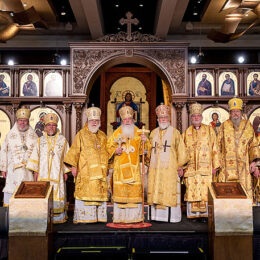Townhall.com Dennis Prager April 19, 2005
Perhaps the most important argument against same-sex marriage is that once society honors same-sex sex as it does man-woman sex, there will inevitably be a major increase in same-sex sex. People do sexually (as in other areas) what society allows and especially what it honors.
One excellent example illustrating this is an article recently written in the McGill University newspaper by McGill student Anna Montrose. In it, she wrote:
It’s hard to go through four years of a Humanities B.A. reading Foucault and Butler and watching ‘The L Word’ and keep your rigid heterosexuality intact. I don’t know when it happened exactly, but it seems I no longer have the easy certainty of pinning my sexual desire to one gender and never the other.
(Michel Foucault is a major French “postmodern” philosopher; Judith Butler is a prominent “gender theorist” at UC Berkeley; and “The L-Word” is a popular TV drama about glamorous lesbians.)




The poor girl sounds confused from the onset: if several courses of pop psychology and a bad soap opera swayed her that easily, I’d humbly suggest she wasn’t all that “straight” to begin with. Does Prager really believe that all the sexual problems in America today can be traced to frank discussion?
Contrary to popular belief, outrageous sexual hijinks didn’t start with the publication of Mr. Kinsey’s book in 1948, but Prager would probably suggest that while the Victorians may have had an underage brothel every place we now have a coffeehouse, at least they had the Christian sense not to talk about it.
Ironically, I’m of such delicate sensibilities that even viewing on-screen kissing with an older adult present would have sent me fleeing the room (or the theater) in search of a temporary distraction until the grope-fest had ended and circulation had returned to my cheeks, so I’m no advocate of crudeness. I just think most people are simply not that malleable.
JamesK,
This girl isn’t the first, and won’t be the last, person to use her sexuality as a politcal/philosophical statement. Many people aren’t malleable in their sexuality. However, intellectuals often are. I have met a lot of women whose radical feminism led them to engage exclusively in lesbian relationships in college, only to emerge from the sheltered counterculture of academia to end up as married housewives in traditional roles. This may seem bizarre to a man, and in deed it always has to me, but many people end up picking a sexual identity the same way others adopt a particular party affiliation or religious affiliation.
Think about middle class white kids who went to college and then became Marxists. Or middle class white kids who went to college and suddenly became devotees of Malcolm X. If you think that indoctrination parading as education, peer pressure, an intellectual embrace of the counterculture, and sheer stubborn desire to rebel can’t result in women embracing a ‘women-centered’ or ‘women-biased’ sexual identity, then you are kidding yourself.
It is harder to see this occurring with men. A man who turns bi or gay as a political statement is much harder, in my opinion, to come across. Becoming homosexual for a man, in effect, destroys one’s male identity. Becoming a lesbian, in modern feminist thinking, AFFIRMS one’s female identity and sexuality.